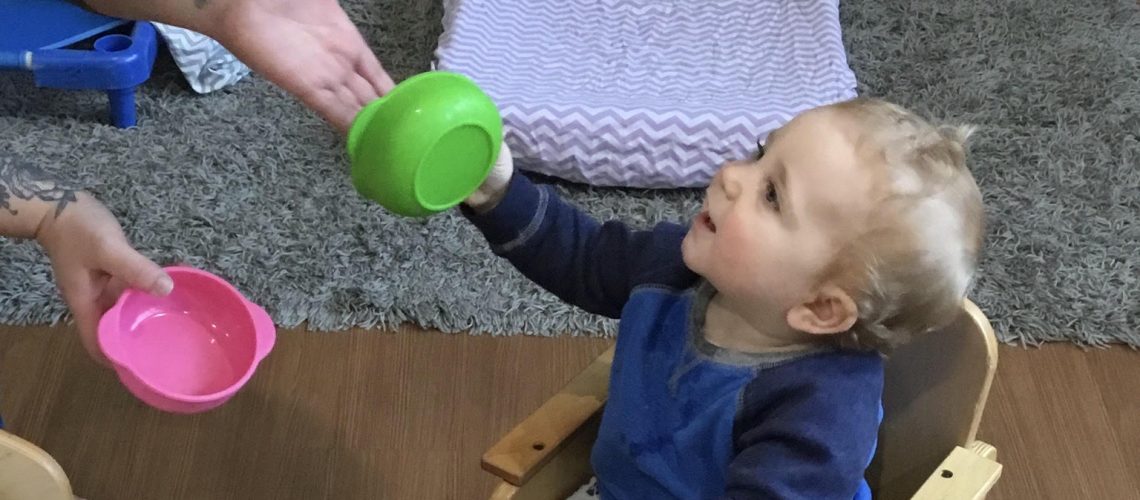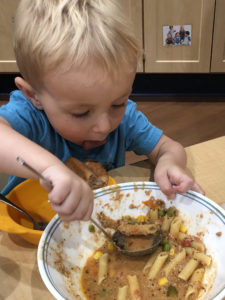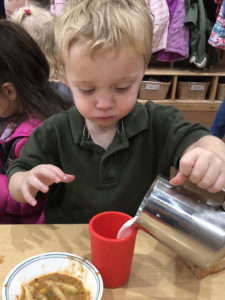The ways The Learning Tree incorporates curriculum into every aspect of the day never fail to impress me! The core value of promoting lifelong learners is not only evident in the academic curriculum, but in the life skills that the children develop at The Learning Tree.
Family style dining is a practice that encourages independence at mealtimes! When the children graduate from Pre K, they are equipped with the skills to pour themselves drinks, serve themselves from shared bowls at their table, properly dispose of unfinished food, and put tableware in a designated place to be washed. All while learning exemplary table manners!
Infant rooms begin the process of family style dining with children as soon as they sit at the tables for solid meals. It is easy to underestimate an infant’s ability to make decisions for themselves, but making an effort to give the tiniest children in our care choices to make for themselves is immeasurably valuable to them in the long run. It starts with holding out multiple colors of bowls and letting each child select one. The children are served and can perform hand signs that mean “more please” or “all done” as the meal progresses. Things like bowl selection and hand signs in infancy lead to independence and excellent communication skills in adults.
The toddler rooms take another step towards family style dining by implementing the “hand-over-hand method.” The children pick their bowls, cups, and silverware. When the pitchers of milk, bowls of their main course, and fruit and vegetable servings are set on the table, toddlers are given the opportunity to serve themselves. Oftentimes, teachers place their hand on a child’s hand and help them with serving spoons and pitchers; this gives the child the experience of serving themselves and an example of how to do so properly. The transition from hand-over-hand to independent serving leaves room for a child to draw conclusions and grow through trial and error. If a child spills milk or drops food, the child recognizes what caused that accident so that they can approach serving differently next time– motor skill development driven by a desire to problem solve!
TPS, Preschool, and Pre K steadily advance in their family style practices throughout their programs as well. “May I be excused?” can be heard when walking by any Preschool or Pre K classroom at mealtime, while TPS students master their pleases and thank yous. The older children even delve into food preparation curriculum that teaches a respect for the effort that goes into their meals!
Family style dining is a staple of The Learning Tree’s way of life for a multitude of reasons! The availability of multiple options that children are able to choose between and sample provides an opportunity to form opinions while building their meals themselves, building their capacities for decisiveness and independent thinking! The motor skill development that takes place when a child is becoming cognizant of the causes and effects of their movements is crucial, particularly when it helps them understand actions like pouring milk or scooping food, which are skills they will use all their lives.
My personal favorite aspect of family style dining is the unity it brings in a classroom. Children learn to be patient and respectful towards their tablemates, take turns, and communicate effectively with their peers about their needs. Teachers are encouraged to sit and dine with their classes to engage in mealtime conversations that form incredible bonds in their classrooms. The unity brought about by this time spent together contributes heavily to the feelings of comfort and security that children, staff, and parents feel at The Learning Tree!



